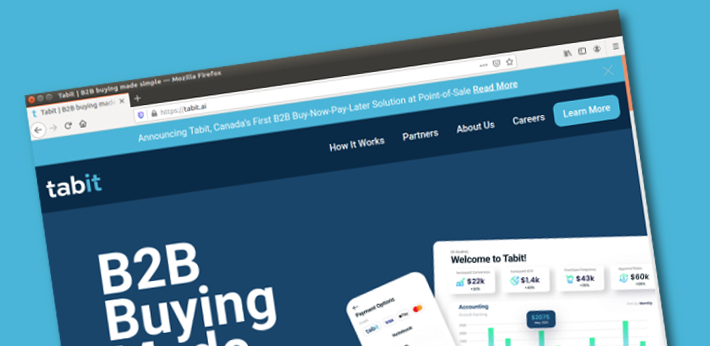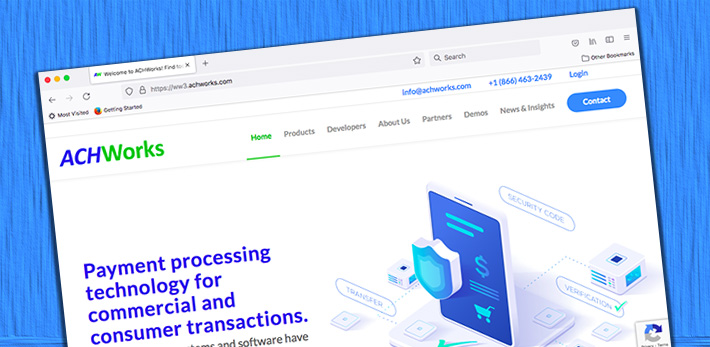Business Lending
Funding Circle’s Originations Have Slowed Dramatically in The US
March 10, 2022 Funding Circle’s US originations fell significantly in 2021 versus the previous two years, the company’s latest year-end report revealed. US originations were only £316M in 2021, of which £224M was PPP funding. That £92M in non-PPP funding was a massive drop from the £619 in 2019, for example.
Funding Circle’s US originations fell significantly in 2021 versus the previous two years, the company’s latest year-end report revealed. US originations were only £316M in 2021, of which £224M was PPP funding. That £92M in non-PPP funding was a massive drop from the £619 in 2019, for example.
Funding Circle attributed the reduction in demand to the ending of government stimulus programs.
“The US has a fragmented SME lending market,” the company stated in its full-year report. It estimated that 89% of all SME lending was done through banks and only 10% through specialty finance providers.
Funding Circle’s loans have small margins. The company projects annualized returns of only 5-7% on its US-originated non-PPP loans. Meanwhile, annualized inflation in the US by comparison is currently trending at 7.9%.
Funding Circle also announced its exit from the peer-to-peer lending model. According to the Financial Times, Funding Circle CEO Lisa Jacobs said of it: “There’s been a big shift; the industry has shrunk severely.”
Broker Show Ends in a Cold Call Showdown For The Ages
March 3, 2022
The nearly 1-hour long season finale of Equipping The Dream aired on Thursday, concluding the first reality show to ever capture the business finance industry. The six-episode series which followed four aspiring equipment finance brokers, proved, if nothing else, that cold calling and phone sales are not dead.
The show’s contestants capped off their week of sales training with a calling competition that came down to the wire and an outcome that left viewers shocked. Josh Feinberg, one of the sales trainers in Equipping The Dream, explained it best. “It almost seemed like it was scripted, but it couldn’t have been more real.”

Two episodes were released each week starting on February 15th. The March 3rd airing of the finale means that eager viewers can now binge the entire show on deBanked TV without having to wait for future episodes. (Start With Episode 1 here)
The show captured a real life broker training at the office of Everlasting Capital in Rochester, New Hampshire. deBanked’s Sean Murray served as Executive Producer.
“I really had no idea what we were going to capture by having our camera crew there all week,” Murray said. “But what we got is something everyone doing sales in the industry should watch at least once. It came out that good.”
Can a Merchant Fund Themselves with Their 401k or IRA? Sort of
March 3, 2022 “There is a way to use a 401k to fund a business, and it’s possible without triggering a taxable event within the retirement account.”
“There is a way to use a 401k to fund a business, and it’s possible without triggering a taxable event within the retirement account.”
Daniel Blue, Owner of a merchant and consumer learning program about utilizing retirement funds called Quest Educations, believes that merchants are overlooking untapped funds that they have already paid into when searching for capital to fund their businesses. According to him, not only does the IRS actually allow individuals to tap into their retirement plans if they fulfill certain qualifications, but banks and Wall Street have a vested interest in keeping this information under wraps.
“A Traditional IRA or a 401k from an old job can convert into a Solo 401k,” said Blue. “Since most IRAs and 401ks from previous employers don’t allow you to access the money inside the account penalty- and tax-free, the ‘Solo’ 401k is the solution to that problem.”
A ‘Solo’ 401k is an IRS-approved retirement account for an entrepreneur who doesn’t have any W-2 employees on their payroll. If a merchant works with an entire staff of freelancers or solo, they can convert their nest egg into this type of 401k.
Blue explained in detail about how this particular type of funding is done. By tapping into what the IRS calls a ‘loan feature’ on the Solo 401k, merchants can actually go in and get cash.
“Per the IRS, the loan feature allows you to take fifty-percent or $50k (whichever number is less) out of the Solo 401k penalty and tax-free,” said Blue. “The money taken out must be paid back to the Solo 401k within five years to avoid a taxable event.”
“There is an interest rate on this loan,” he continued. “Once locked in, the interest rate is fixed and returned to the Solo 401k. The interest rate is prime plus one or two percent. The money taken out of the Solo 401k via the loan feature can be used to fund a business.”
This type of loan isn’t as risky as it sounds. Blue says that the merchant isn’t risking their retirement accounts should they default.
“The IRS requires that quarterly payments get made back to their Solo 401k, and the loan must be paid in full within five years to avoid a taxable event,” he said. “If the loan gets into a default status, the remaining loan balance becomes taxable income. [The merchant] doesn’t lose their retirement account or their business if their Solo 401k loan gets into default status.”
Blue referred to the process as a merchant ‘becoming their own bank’. In a time where finding different avenues of funding is the name of the game in small business lending, harnessing a niche customer to provide them a personalized, low risk financial product seems like a no-brainer if the qualifications of funding are met.
Why a Small Business Finance Company Brought BNPL to B2B Transactions
February 27, 2022 Tabit, a subsidiary of Vancouver-based Merchant Growth, has rethought business financing by integrating a newly conceived consumer-based product, (Buy Now Pay Later) BNPL to the B2B transaction world. As a decade-old small business finance company, Merchant Growth’s launch of Tabit shows how alternative financiers from across North America are trying to find new financial products that serve tomorrow’s merchants.
Tabit, a subsidiary of Vancouver-based Merchant Growth, has rethought business financing by integrating a newly conceived consumer-based product, (Buy Now Pay Later) BNPL to the B2B transaction world. As a decade-old small business finance company, Merchant Growth’s launch of Tabit shows how alternative financiers from across North America are trying to find new financial products that serve tomorrow’s merchants.
According to David Gens, CEO and President of Merchant Growth, Merchant Growth’s steady business provides Tabit with the infrastructure, manpower, and underwriting capabilities it needs to develop this kind of unique financial product.
“At a Money 20/20 conference many years ago, a speaker made a comment that resonated with me,” said Gens, when asked about the origin ideas in Tabit’s development. “That speaker, I forgot who it was now, said that small business financial services share more similarities with consumer offerings than they do with the mid-market and commercial space. In other words, innovations that become successful in the consumer space end up translating over to small business.
“Ever since then I’ve taken that to heart and as we watched the explosive growth in the consumer BNPL space,” Gens continued. “We were constantly thinking about whether the timing is right to translate this over to B2B transactions.”
Gens also gave credit to his industry awareness, saying that he saw those on the international stage having similar ideas.
“In the past 12 to 24 months, we’ve also seen a number of announcements internationally of companies raising VC funds to do just this, but nobody has yet announced in Canada,” he said. “In our strategic planning meetings, we looked closely at our company’s capabilities and determined that we are well suited to build this.”
Tabit’s perceived advantage is that they can reinvent the lending space by not wrapping a financial product in a digital service like other techy lenders, but instead use relationships between businesses and their vendors in order to keep their cost of acquiring customers down, thus having the cost of financing cheaper for the borrower.

“Tabit is our answer for how to reach as many small businesses as possible in an economically sustainable way, therefore delivering a cost-competitive product,” said Gens. “That is by leveraging the relationships that B2B sellers have with their buyers, [and] it’s a great way to scale the delivery of SMB credit and provide significantly greater access to capital at competitive rates.”
Gens also touched on the idea of the need for new financial products to compete with innovation in lending. Despite recognizing the existence of digitally native merchants and the desire to incorporate tech into a financial product, Gens doesn’t seem to think there is a need to overhaul the market with experimental ideas.
“I think that the launch of Tabit is an embodiment of the trend of digital consumer experiences proliferating in the small business and B2B space,” said Gens. “[It] also speaks to the growing influence of digitally savvy and millennial business owners on SMB fintech offerings. Credit is fundamentally an old product that’s been around for thousands of years. It’s the way in which it is delivered and how and when that will continue to evolve.”
“It is also becoming increasingly dynamic and fluid with real-time data and machine learning models, creating unprecedented convenience as well as accuracy in pricing of risk, which drives accessibility,” Gens continued. “Innovation should remain focused on minimizing the friction and “number of clicks” for users of credit, freeing up time to be spent on other valuable activities.”
At the consumer level, BNPL has faced some scrutiny by both users and regulators. Credit being available at a moment’s whim at the point of sale, with limited time to decide on the consequences of taking on a financial product has had many people question the ethics and long term outlook on it. Gens however, is not one of those people.
“I struggle to see how low-interest point-of-sale financing can be considered predatory,” said Gens. “Such a product eases financial burdens, it does not increase them. Particularly in the B2B space where such an offering helps accelerate growth for small businesses, I am optimistic that regulators will perceive B2B BNPL payment solutions favorably.
Square Loans Originated $850M in SMB Funding in Q4
February 24, 2022Despite Block feasting off of Bitcoin sales revenue last year, the company’s small business lending division, Square Loans, originated $850M in loans in the 4th quarter of 2021. That was spread out across 103,000 loans.
That brings the full year 2021 total to $2.45B, a new annual record for Square Loans, whose non-PPP related lending had dropped by more than 50% in 2020 when compared to 2019. It also put them ahead of rival OnDeck for the first year ever.
Square Loans was not mentioned by name during the company’s Q4 earnings call, but Square CFO Amrita Ahuja said, “We continue to believe our Square ecosystem is differentiated due to our integrated and cohesive set of products across the hardware, software, payments and financial services, serving seller needs in a more comprehensive way. We are making progress in surfacing incremental product adoption to serve our sellers across multiple vectors, with a goal of creating a more retentive and valuable relationship.”
SMB Lending Fraud is Up, and Non-Bank Providers are Most Impacted
February 24, 2022 Small business lending fraud increased almost 7% since 2020, according to a recent study done by LexisNexis Risk Solutions. They found that on top of fraud costing lenders time and money, increasing numbers hit the alternative financing space harder than any other lending sector.
Small business lending fraud increased almost 7% since 2020, according to a recent study done by LexisNexis Risk Solutions. They found that on top of fraud costing lenders time and money, increasing numbers hit the alternative financing space harder than any other lending sector.
“Seventy percent of the non-bank lenders that participated in the survey indicated that they had seen a rise in fraud attempts during the past year,” said Tom Hunt, Director of Business Risk Strategy at LexisNexis Risk Solutions when asked about non-bank lender experiences with fraud. “The other item of note regarding this group was that they reported the largest overall increase compared to the previous year in terms of fraud losses as a percent of revenue, growing from an estimated 6.8% to an estimated 8%, a more than 17% increase.”
The study found an increase in labor to combat fraud, especially as PPP fraud ran rampant during the pandemic, as well as a rise in spending on combating fraudulent business credentials or stolen identities that were trying to access PPP money. It also found an increase in mobile lending channels, where the study claims the largest share of lending transactions originate. In the mobile space, fraud losses are up over 10% for both non-bank lenders and big banks.
The study also found that lenders who had advanced or ‘layered’ identity protocols experienced significantly less fraud in their transactions. Although more of an initial investment, these protocols prevented companies who had them from being a part of the rise that took place during the pandemic.
Hunt spoke about the pandemic’s impact on fraud, and how it has raised costs for financiers who already have substantial overhead. “The impact of the pandemic on costs associated with lending fraud is clear, although there is no one-size-fits-all model to solve for SMB fraud. When employing a layered solution approach, lending firms with digital channel business models should implement solutions for their unique channel issues and fraud,” said Hunt.
“One of the best fraud prevention approaches involves a layering of different solutions to address unique risks from different channels, payment methods and products. This approach also allows lenders to integrate additional capabilities and operations more easily within their fraud prevention efforts.”
When speaking further about the digitization of the approval process, Hunt spoke about the need for constant innovation in KYC protocols. According to him, the only way to combat the latest fraud is to have the latest security.
“The digital channel environment is upon us and continues to grow as customers and prospects expect digital lending options, particularly during times that make in-person transactions more challenging,” said Hunt.
“At the same time, fraud is evolving and has become more complex for lenders. Various risks can occur simultaneously with no single solution to solve for all of them. To be effective, fraud tools now need to authenticate both digital and physical criteria simultaneous with identity and transaction risk.”
The study casts blame on the pandemic as the main cause of rising fraud in the industry. With PPP fraud cases popping up all over the country, pandemic-induced fraud will be in the mix of financial scandals for many years to come. The entire study can be downloaded here.
Tomorrow’s Broker/Funder Relationship, According to Funders
February 23, 2022 “In the end, we all press zero to talk to someone.”
“In the end, we all press zero to talk to someone.”
The conversation about what characteristics will make up tomorrow’s loan brokers is surrounded with ideas latched in fintech, social media, and more. Brokers from around North America have been showcasing these new strategies on social media or in chats with deBanked, which sparked the question — what do the funders think of all of this?
Efraim Kandinov, CEO of FundFi Merchant Funding, has a lot of ideas about how brokers should function in a constantly changing financial landscape. According to him, it’s not the style of funding or modernization of business logistics that will make tomorrow’s broker, but it’s leveraging ethics with both merchants and funders to preserve future business down the line.
“I believe more and more merchants look for the digital aspect and remove the broker because of the dishonesty that we usually uncover and want something clean without interpretation. Many issues with merchants in my opinion [stem] from being misled by the broker, promising something after to just take this deal or promising to get payments lowered and take an overleveraged position.”
Other funders think much differently, identifying a sense of community being brought about by tech, having a ‘we’re in this together’ type of mantra to hold the legacy industry up.
“There’s a sense of familiarity when dealing with my brokers,” said Amanda Schuster, CEO and President of Fundhouse LLC. “We’re your friends, we get you, we get your business.”
Schuster believes that relationships between funders, brokers and merchants alike will help them weather the storm of tech’s emergence into their industry.” We are your business and it’s just as important to us that you succeed,” she said. “I have business owners that I still speak to this day, that I funded over five years ago.”
Schuster dismissed companies like PayPal, Square, and Shopify’s takeover of small business lending, circling back to the interpersonal value that a broker provides as a face to a financial product.
“At the end of the day, business is always about the people,” she said. It’s about creating a need and filling it. You can’t do that on a website.”
When asked about the value of this happy-go-lucky community of brokers, funders and merchants, Kandinov brought up how some brokers have found ways around the ‘repeat business’ model of funding deals, thus making relationships between brokers and merchants pointless.
“I think brokers are less caring of repeat business because they have discovered a short term model of stack, stack, stack, and then put in a reverse. This front loads commission. I believe a broker has a huge advantage in creating the relationship. [This] unfortunately is starting to take a back seat to a new way to score big commissions.”
Kandinov spoke about brokers who will say anything to make a sale carelessly shooting themselves in the foot when it comes to forming a book of business. By saying whatever they need to get paid now, merchants are either going straight to the funders to big tech for their next source of funding.
“Jaded merchants then look to only speak to the funding house in the future and stay or just prefer the direct to consumer model of fintech,” said Kandinov.
Despite these feelings, Kandinov does believe that there’s a bright outlook on the future of the broker/funder relationship if some change occurs.
“[Brokers] deserve their high commissions as they do a lot of work. I think funding houses have much less overhead with the broker model, but lately with the broker behavior it is almost pushing themselves out if it continues. I do not believe fintech alone is advantageous, just in speed and clarity. It’s a byproduct of poor behavior.”
Q & A with Ryan McCurry of ACHWorks About the Future of Small Business Lending
February 22, 2022 In a recent chat, deBanked talked with Ryan McCurry, President of ACHWorks. McCurry discussed the future of his company, payments, small business financing, and the impact of digital assets on the industry.
In a recent chat, deBanked talked with Ryan McCurry, President of ACHWorks. McCurry discussed the future of his company, payments, small business financing, and the impact of digital assets on the industry.
Q (Adam Zaki): Your company recently announced an acquisiton. How does this move help take ACHWorks to where the company wants to go?
A (Ryan McCurry): We are excited to share that ACHWorks was acquired by VeriCheck Inc. on December 31, 2021. VeriCheck Inc. (VCI) is a wholly owned subsidiary of Commercial Bank of California (CBC), who has been one of ACHWorks’ sponsor banks for nearly 20 years.
The acquisition brings more resources, both in terms of staffing and capital to ACHWorks’ business efforts. Conversely, ACHWorks’ sales approach, market specializations and diverse technical capabilities will support VCI’s growth goals. By combining the teams and technology, we believe we will compound our benefits to reach an even higher level of success together.
The great news with this acquisition is that where ACHWorks was weak, VCI is strong. Likewise, ACHWorks has some unique technology and expertise that VCI hadn’t leveraged before and can now capitalize upon.
Furthermore, VCI relies heavily on partnerships with ISO’s and third party gateways for processing ACH payments with a high number of merchants across all sectors, whereas ACHWorks tends to specialize in a few verticals while maintaining direct sales and direct relationships with all merchants – even when the merchant is utilizing an integrated software partner.
Q: Are ACH payments here to stay? With so many ideas floating around in this space, what is the future of ACH?
A: The future of the ACH as a payment system is strong and growing quickly. In 2021, the ACH network grew by 29.1 billion payments valued at $72.6 trillion dollars. Same Day ACH grew by 74% over 2020 and total volume was up almost 9%, continuing a 7-year growth trend. Business-to-business ACH payments grew at a rate above 20% and 33% over the last two years, respectively.
We believe the ACH payments space is going to continue to grow and become a more widely used payment rail, and our acquisition is evidence of that growth.
Q: What is the biggest issue your company is currently overcoming?
A: There are always challenges facing the payments industry. Naturally, as a fintech industry, payments companies regularly face emerging technology, regulatory or legislative activity, and ongoing cybercrime.
Currently, our focus is blending the VCI and ACHWorks teams and evolution of our joint technology. We are pleased to share that VCI hired the entire ACHWorks operational team, and is retaining all of our existing technology and benefits to our clients. Bringing the two platforms and teams together will have exponential benefits for clients and partners moving forward.
Q: The small business financing industry is becoming less reliant on the traditional sales models. How will ACHWorks combat this? Will you help the funders/brokers innovate to help secure the current infrastructure or seek new tech clients that are stepping into the space?
A: There’s the old saying that change is the one constant. Initially, business finance companies only wanted ACH for reoccurring daily debits, and as merchant demographics changed weekly or custom payment frequencies have become more prevalent. However, now about half of our business finance clients use ACHWorks’ technology not just for debiting merchant receivables, but also for sending ACH Credits to merchants for funding a deal, automating syndication payments for participation rates or paying commissions to brokers.
Likewise, ACHWorks offered Same Day ACH capability to our clients on the first day it become available on the ACH Network. The use of Same Day ACH has been slowly increasing as funders utilize it both to fund merchants or to act on a merchants request to charge them today (most common on distressed accounts).
As the funder / broker relationship continues to evolve, ACHWorks will be there to help facilitate the movement of the funds. We hope to leverage our unique status of being owned by a bank to bring new technologies to the business finance industry and other spaces that are under-supported by traditional payment processors. We are excited for these new capabilities to come and will keep the deBanked community updated as we have more to share.
Q: There seems to be a lot of payments companies across fintech. The elephant in the room at Money 20/20 in October was the ‘payments bubble’ taking place. What is your take on this? Is fintech looking too much into payment processing innovation?
A: Automobiles have been around for about 140 years, and yet innovation continues to happen. They have seen the switch from steam to electric, to internal combustion and back to electric. Computer technology has only been common in business usage since the 50’s and the internet has only been heavily used since the late 90’s. When I started in this business, we used to mail our software to clients on a series of 14 floppy disks. I would argue that the innovation and evolution of payments and fintech is only in its infancy.
As technology continues to permeate all walks of life, we expect to see payments leveraged to make commerce more organic with far less friction. Most payment processors I speak with feel that we are the original “fintech” and that the newly emerging “fintech” market is just utilizing the infrastructure we put in place.
Q: Are cryptocurrencies a topic of conversation in your office? Blockchain tech offers major benefits in the payments world. Do you or your company have any thoughts on how this could be leveraged?
A: You can’t escape crypto, it invades all conversations these days. However, our focus is on working with fiat currency and regulated payment channels because we process ACH payments through the Federal Reserve utilizing State or Nationally chartered banks. Don Singer, the CEO of VCI and I were discussing this topic previously, and he told me crypto is the new shiny sports car, or personal aircraft, but we work on the rail road. ACH is not as sexy as crypto, but it moves nearly all of the money in the U.S. Those debit card, credit card, Venmo, Zelle and real time payments systems are just the messaging systems, the money is being moved later that day, and it’s being moved via ACH.





























